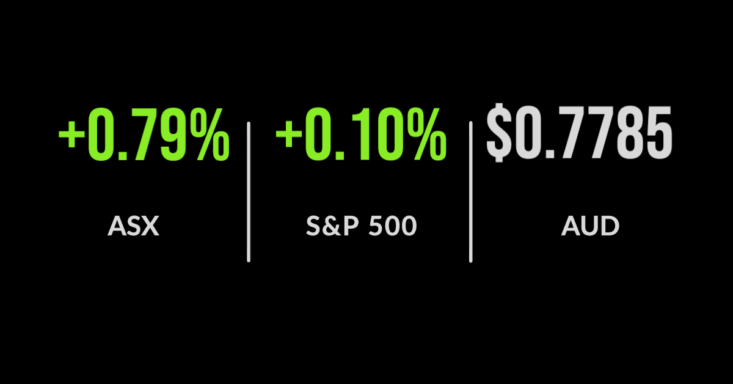ASX in weekly gain as travel sector gets a boost
ASX gains on travel boost, inflation expectations tempered, but confidence key
The ASX200 (ASX:XJO) finished the week strongly, adding 0.8% on Friday, enough to deliver the second straight week of gains.
Stimulus was at the top of the agenda this week, with a combination of comments by the Reserve Bank of Australia and the Federal Government setting the direction of markets.
Early in the week, loose monetary policy and QE3 was all but confirmed as the central bank keeps a laser-like focus on wage growth rather than other economic measures.
Similarly, the $1.2 billion subsidised flight scheme sent the consumer discretionary 4.1% higher on hopes of a tourism recovery.
Corporate Travel (ASX:CTM) was the biggest beneficiary, jumping 14.0% with hopes a pickup in flight bookings will feed into business and leisure spending once again.
Australia’s leading BNPL were caught up in the tech sell-off even as bond rates flattened, with Zip Co (ASX:Z1P) dropping 10.2% on valuation concerns, despite this, the tech sector added 0.9%.
Despite the fall in the smaller companies sector, both in Australia and overseas continues to deliver, offering greater levels of diversification compared to highly concentrated indices.
ASX rebalancing, commodities back in focus
With the end of the month approaching, the inevitable index rebalancing was released today, offering an interesting insight into the evolution of the ASX.
Among those added to the ASX200 were data analytical firm Nuix (ASX:NXL), lithium producer Pilbara Minerals (ASX:PLS), and platform provider Hub24 (ASX:HUB), with the more old-fashioned Service Stream (ASX:SSM) and Smartgroup (ASX:SIQ) making room.
Goldminer Silver Lake (ASX:SLR) was among the leaders over the week, adding 11.3% offsetting a falling gold price with stronger production.
Dividend darling Southern Cross Media (ASX:SXL) may well be another ‘yield trap’ with the company losing its agreement with Nine Entertainment to the WIN Network from 1 July and shares falling 10.4% on the news.
The risk on, value focused rally finished the week on a high note, with the Dow Jones adding 0.9% taking the weekly gain to 4.1%.
The unique share price weighted index, rather than size weighted, is seen as a better measure of more cyclical, economically exposed companies compared to the tech heavy Nasdaq and S&P500.
Both finished higher for the week, the Nasdaq up 3.1% and the S&P500 2.6% despite what has become an increasingly volatile environment.
DocuSign was the latest company to be hit, with the share price down 6.6% despite the secure document delivery service reporting a 57% increase in quarterly revenue and a 59% increase in ongoing subscription revenue.
The Chinese regulator ramped up its pressure on the country’s tech billionaires, announcing twelve significant fines against the likes of Tencent, Baidu, Didi, Soft Bank and Alibaba as they attempt to reel in growing market power.
Is inflation real? Reshaping the energy sector, looking beyond fundamentals
The threat of inflation has been making headlines in recent weeks, with a particular focus on the impacts on bond rates and equity market valuations. Yet there are two clear camps emerging.
On the one hand, there are those certain that inflation is set to spike due to a decade of money printing and stimulus, and those suggesting the same deflationary forces pre the pandemic, such as the ageing population, technology and casualisation, will keep prices down.
US inflation offered little insight, with both headline and core inflation, which excludes volatility inputs like energy and food, well below the targeted 2% to 3% this week.
The energy transition stepped up another gear with the early closure of Victoria’s Yallourn coal-fired power station set for 2028. The station delivers some 20% of our state’s power and hence will have a significant impact on prices in the coming years.
The question is how to replace it, with fossil fuel projects unable to obtain finance and many renewables suffering a difficult period during the pandemic impacting on their investment returns.
Finally, with reports that Australia has 1.25 million active share traders, it is a word of caution; there are no simple rules to winning in the share market. Research, planning and risk management are all equally important.










